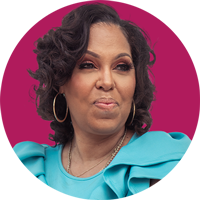I’m Marsha Parker, the Strategist & Technology Leader at the Ford Motor Company in Detroit, MI. This article is part 4 of my 4-part blog series on data and analytics. Read the first article about data as a strategic asset here. Read the second article about data monetization here. Read the third article on data democratization here.
In this article, I’ll examine the set of behaviors and code of conduct that data scientists should aim to uphold into their professional careers. We will explore the world of data ethics, including data privacy practices and data integrity standards.
_____________________________________________________________________________________
The main goal of any company should be to focus on providing world-class data and analytics services that enable their business partners to make insightful business decisions.
Best-in-class companies create an innovative culture to fully utilize analytics at all levels. Drivers for creating an innovative culture start with impactful leadership, hiring the right people, trust in your people and the data, and a shared sense of belonging and curiosity.
Having trust in your people and your data is the foundation for any ethical data-driven organization.
What is data ethics, and how do ethics and data science work together? The ethical use of data is defined as establishing a set of behavior norms and standards for how someone should act in any given situation, in relation to data practices.1
“Data ethics ensures accountability when collecting, analyzing, storing or managing data with the goal of minimizing risk to a company, individual or society (GSA, 2020).” 1
Big data ethics requires that we:
- Treat data as a strategic asset
- Create a level of transparency about data through data democratization
- Identify creditable sources of data
- Provide context about data to ensure data integrity
- Build trusting partnerships
- Act with data integrity when shaping and communicating insights
The ethical use of data starts with establishing a code of conduct for all data professionals.
Big data ethical issues: Code of conduct
As a data professional, you will use data to discover patterns to diagnose business problems, both of which should be completed in accordance with a code of conduct. “Establishing a code of conduct ensures adherence to acceptable behavior and standards for data sharing and collaboration within an organization (Bloomberg, 2017)." 2
According to Gideon Mann, Bloomberg’s head of data science, “When data scientists are entrusted with the most private and trusted data out there, the data science community must work to deserve the trust of those who data we are holding.”
A code of conduct should focus on developing data professionals in the following roles:
- Trusted advisor
- Relationship builder
- Gatekeeper
- Innovator
- Ethical change agent
- Trusted advisor – Earn the business’ trust
As a trusted advisor, your role is to act as a strategic partner with your colleagues by building your credibility. 3
Earning the trust of partners within your company starts with understanding the business needs, aligning business decisions with data insights, forecasting trends and building predictive models. In your role as a trusted advisor, you will have an opportunity to guide and shape the mindset of your business colleagues as you explore how to best use data. Your business partners will look to you to build a sense of community about the possibilities of the data while using inclusive inquiry strategies and being a credible resource. For example, when a data scientist validates business decisions, they must examine all variables (e.g. people, processes, structure, values, data strategy) to ensure integrity of those decisions. Introducing these decisions into any organizational structure will require sound integrity-based principles to ensure favorable outcomes. These standards build a level of trust between a data scientist and the business community.
As a trusted advisor, you will have access to various types of data that will enable you to shape data models. As you communicate these models and findings, it is critical that you operate from a foundation built on trust, collaboration and shared vision.
- Relationship builder – Build rapport and relationships through data storytelling
As you establish relationships, it’s important that you build rapport and communicate data findings clearly and concisely. As a relationship builder, you will use data storytelling to effectively shape visuals and insights to connect with your audience. Purely using data to illustrate findings without shaping can lead to misinterpretation of insights and eventually lead to data integrity issues. This data storytelling can come in many forms, from reports to case studies.
“Data storytelling is a methodology for communicating information tailored to a specific audience with a compelling narrative (Nogit, 2020).” 4
As you shape your data, you will need to frame your narratives based on the following principles:
- Persona of user: Understand your audience, their pain points and their frustrations
- Data narrative: Articulate a data point of view based on insights and trends
- Data story: Create a brief, compelling story that gets to the heart of your message
- Data visual: Develop a visual that complements and frames your compelling story
The elements of storytelling aim to help your audience gain a point of view about the data and arrive at collaborative insights through thoughtful discussion. 5
In this safe environment, you will create a climate and culture of sharing knowledge. You’ll act as a coach and mentor along with ensuring continuity in data insights while maintaining integrity in your findings.
- Gatekeeper – Remediate and protect the needs of the business
As a gatekeeper, you will need to ensure sound practices around collection, storage, analysis and distribution of data. In your role, you will be required to protect the needs and interests of the business. For example, as you grow in your knowledge of the business, you will learn their unique business practices. You will have the opportunity to present a holistic perspective that might not be obvious to the business based on your newfound knowledge. How you present this “new knowledge” to the business and solve their needs will require a high level of transparency and the ability to set boundaries.
Boundaries can take the shape of breaking down problems into simpler solutions, constant communication with stakeholders, expressing constraints on implementation of data solutions, ensuring minimization of biases and confirmation of external variables that test the limits of the data, all through an ethical lens.
As a gatekeeper, you will:
- Maintain data integrity in data management and sharing
- Provide a realistic view of business problems
- Confirm limits of data and data challenges
- Uphold data ethics and standards
- Ensure consistency in application of data and associated data stories
As a data professional, you may be required to serve on internal and external governance boards as a gatekeeper.
- Innovator – Challenge internal mindsets and innovate
As an innovator in the field of data and analytics, your goal is to challenge internal mindsets about data and seek to innovate as the field evolves. Innovation is the creativity that drives change and creates opportunity to evolve data. As the business grows, so will the need to drive innovative data strategies to address business challenges.
As an innovator, you will:
- Explore the evolution of big data and impact on the business
- Drive for improvement in tools and technology
- Shape community view of data and strategic value
- Build data literacy of community
As a data professional, innovation is the fuel that drives creativity in how you approach data challenges.
- Ethical change agent - Thoughtful and respectful ethical agent who solves problems, minimizes biases, and maintains data privacy
As a change agent, you’ll focus on maintaining data privacy and minimizing biases to avoid conflicts of interest. 5 You’ll help to minimize biases by taking the time to properly understand your audience and associated demographical data, gathering data from multiple credible sources, reviewing findings with businesses and participants, and avoiding bias in the design of your solution while maintaining data privacy of participants. These practices will ensure that you are considered a thoughtful and respectful ethical agent.
As a change agent, you will:
- Evangelize data needs to innovate
- Drive change in internal processes
- Apply statistics to improve quality
Data practices
As you shape the expectations and behaviors of the data professionals in your organization, you will need to also examine your data practices. Data practices are institutional norms that drive your data decisions. Let’s examine a few data practices to ensure big data ethics practices and standards within an organization.
A. Data privacy practices
Data privacy is a branch of data security that is concerned with the proper handling of data (Brook, 2020). 6 As a company, you must ensure that data is properly managed, stored, collected and shared.
What type of practices will you enable to maintain an ethical standard to comply with regulatory guidelines?
Consider how you will:
- Handle data across the enterprise and business units
- Share data shared with third parties
- Collect & store data
- Comply with regulatory guidelines (e.g., GDPR, HIPAA, CCPA)
B. Data protection
Data protection is the process of safeguarding information from corruption, compromise or loss (Crocetti, Peterson, Hefner, 2021).7 As a data professional, you will ensure that practices are in place to enable protection of data from being unethically compromised.
Consider how you will:
- Apply data lifecycle management practices
- Develop data protection strategies, such as governance councils
- Govern data and information management practices through the use of standard
data operations practices
C. Data integrity standards
Data integrity is the overall accuracy, completeness, and validity of data (Brook, 2020). 6 Data integrity provides a sense of confidence in the accuracy of the data stories and insights provided to make business decisions.
Consider how you will:
- Increase stability and performance of data through common practices
- Drive enterprise decision-making
- Build confidence in insights and business decisions
You’ll want to ensure that the business has confidence in the accuracy of your insights and findings.
World-class organizations: Last words
In this article, we identified ethical attributes needed for data professionals as well as the data science ethics practices that need to be implemented to ultimately drive ethical data-backed decisions. As you seek to create a culture of trust in your people and data in your position as a data advocate, these practices will help guide how you deliver business value while upholding key ethical principles, and ensure that your organization is doing its due data diligence.
Keep reading this 4-part data analytics series on the Becker blog to learn about how you can implement new data processes to best serve your organization.
Ready to begin your journey into a data-centered professional role? Enroll in Becker’s Data & Analytics for Business Professionals Certificate to learn about all things data management and organization. Bring your company into the 21st-century data landscape with help from Becker.
References
- GSA. Data Ethics Framework. (2020). Retrieved from https://strategy-staging.data.gov/assets/docs/data-ethics-framework-action-14-draft-2020-sep-2.pdf
- Bloomberg, BrightHive, and data for democracy launch initiative to develop data science code of ethics. (2017). Retrieved from https://www.prnewswire.com/news-releases/bloomberg-brighthive-and-data-for-democracy-launch-initiative-to-develop-data-science-code-of-ethics-300524958.html
- Trusted advisor. Retrieved from https://kapta.com/key-account-management/mean-trusted-advisor/
- Retrieved from Nogit. What is data storytelling? The most effective way to share information and drive outcomes. Retrieved from https://www.nugit.co/what-is-data-storytelling/
- Duarte, N. (2019). Data story. Explain data and inspire action through story. Idea press Publishing.
- Brook, C. (2020). What is data integrity? Definiton, Best Practices and More. Retreived from https://digitalguardian.com/blog/what-data-integrity-data-protection-101
- Crocetti, P., Peterson, S. & Hefner, K. (2021). Data Protection. TechTarget. Retrieved from https://www.techtarget.com/searchdatabackup/definition/data-protection
- McKendrick, J. (2017). 7 new jobs created by big data. Retrieved from https://www.zdnet.com/article/7-new-types-of-jobs-created-by-big-data/









